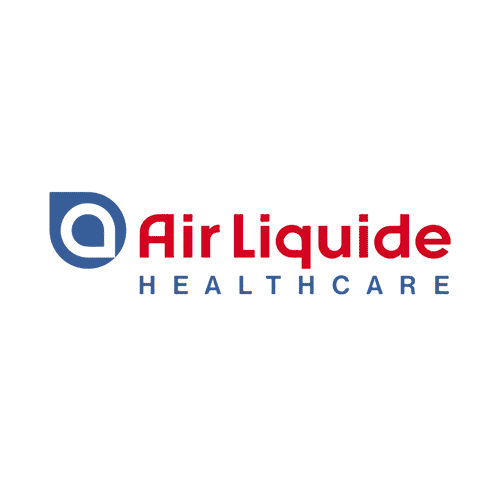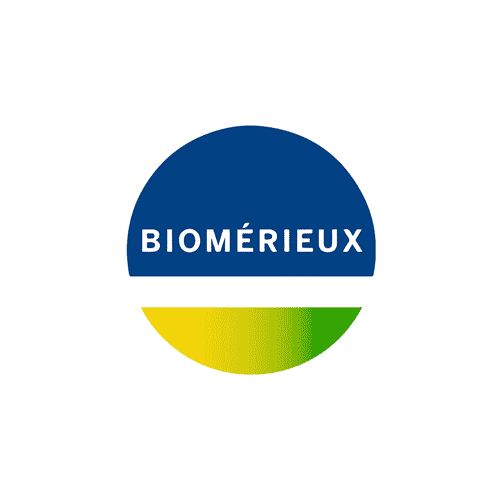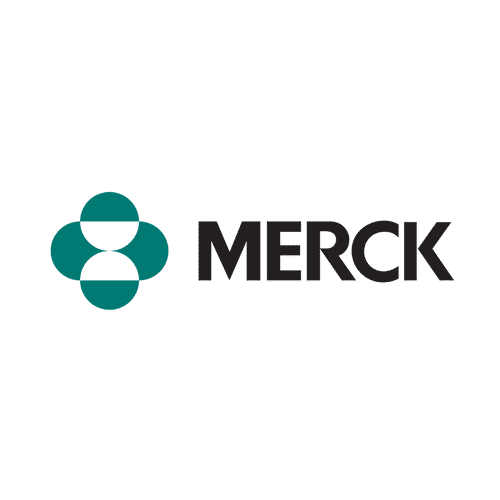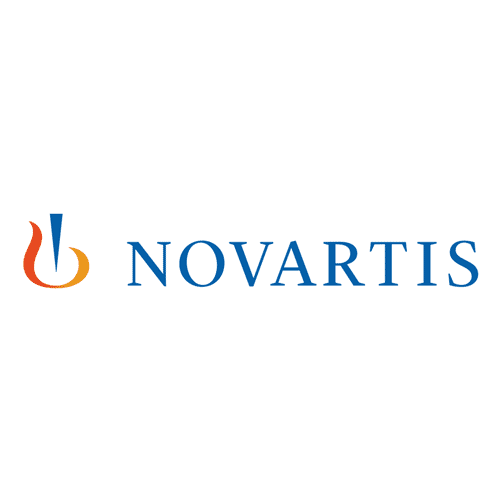
Personalized medicine

Develop research and innovate in the personalized medicine market
Our specialized team supports healthcare players in the promising field of personalized and precision medicine, from R&D and market access phases to its adoption by healthcare professionals and patients.
They trust us









The challenges related to personalized medicine
Currently, personalized medicine is mostly targeting oncology indications (for example with CAR-T cells therapy) and genetic disorders (like cystic fibrosis or epilepsy). However, its use should expand to a broader range of applications. The global market of personalized medicine should thus reach $85.5 billion by 2025, growing at an annual rate of 9.9% (according to Grand View Research).
Several stakes around the expansion of personalized medicine can be thought of, among which:
Health Care Providers need to understand the patient’s genetic profile and get familiar with new technologies in order to personalize their approach to disease prevention, diagnosis, treatment, and management. However, lack of expertise in genomic testing is a key obstacle to precision medicine, many physicians struggling to accurately interpret test results without specialist assistance. Thus, a 2018 survey of 160 oncologists by Cardinal Health found that 60% of physicians who do not use genomic tests avoid them because of the difficulty of interpreting the genomic data.
How to educate and train HCPs to ensure an effective use of these new technologies? How to re-think the whole care organization in oncology and genetic disease in order to include precision medicine protocols? How will evolve the HCPs role and responsibilities – especially oncologists’- in the next future and how to support them? How to ensure hospitals hire the right specialists to support physicians in deciphering the data?
The expansion of Big data (e.g. Multi-omics, images, device data, electronic health records…) is an obvious key driver of personalized medicine, and the creation of powerful systems to analyze it requires massive scientific and technical developments, in which multiple stakeholders have a role to play. Pharma and diagnostic companies need to rethink their R&D strategies to better understand diseases at a molecular level, develop tests to analyze genetic data and invest in tools to interpret it. They can also develop innovative partnerships; one key example being Roche’s partnership with Illumina in January 2021 to broaden the adoption of distributable next-generation sequencing (NGS) based testing in oncology. Governments also have a role to play by driving efforts in building genetic data sets and biobanks. Former US President Barack Obama launched for example the Precision Medicine Initiative in 2015; (which then became the “All of Us research program”), aiming at gathering health data from more than a million US volunteer-citizens.
Who will be the key stakeholders to partner with in the next future? How will the market for future tests evolve and how to be ready on time? Will the value lie in the test itself or in the insights generated?
Personalized medicine is based on individuals’ data, collected with diagnostics and behavioral devices. Therefore, some security concerns naturally arise regarding the way this data is used. Thus, the use of personalized medicine must be accompanied by appropriate basic policies, frameworks and tools. On the other hand, patient data privacy is dealt differently depending on the country, and stringent local data protection regulation could jeopardize the personalized medicine momentum.
How to ensure personal data protection when sharing them is needed to ensure patient care and research progress? How to deal with different national or regional data privacy regulation? How to educate patients on the need to share their genetic information for medical research?
The tremendous clinical benefit of personalized therapy has a cost: molecular diagnostics can be hundreds to thousands of dollars and are not always reimbursed, therapies themselves can cost up to hundreds of thousands of dollars a year. In the 2018 Cardinal Health study, many participating physicians said payers’ failure to cover the costs of genomic tests was as a common barrier to adoption of genomic testing. The pharma industry needs therefore to partner with payers to develop new and affordable business models around personalized therapies. These should include appropriate reimbursement of molecular diagnostics, of the targeted therapies themselves, and of other personalized treatment protocols, to incentivize the practice of personalized medicine.
Which commercial model should be developed around precision medicine therapies? How to ensure access equity for all patients? How to define the best commercial model when smaller and smaller patient populations are considered? Who will own the future value of these therapies? Will traditional blockbusters markets become less profitable than smaller and exclusive markets of personalized medicines?
Precision medicine is changing the way clinical trials are and will be set up. As genetic testing helps create subtypes of diseases (like HER2-positive or triple-negative breast cancer), it is possible to test one drug on a big group of patients with different known types of the disease. In parallel, trials can also test targeted therapies specifically designed for patients with one given genetic variation. Thus, the use of one-person trials, known as “n of 1 trials,” is supporting personalized medicine research. The response rate is therefore likely to be higher as the studied treatment will target just one aspect of disease, for example one specific genetic mutation, that all the patients involved in the trial will have. By studying only people who can respond, researchers maximize the chance of good results.
How to re-design clinical trial to adapt to precision therapies? Will smaller trials with better results mean faster drug approvals?
How we support you in your projects related to personalized medicine
At Alcimed, we support Pharma and Diagnostic players who wish to engage in personalized medicine or are already involved in this field.
Our clients’ diversity (pharma companies, biotechs, research centers, professional associations, national or European institutions,…), the geographical fields we explore, and the types of projects we develop, give us global in-depth understanding of the challenges faced in the field of healthcare and active insight into the development of personalized medicine.
We can support medical but also marketing and commercial teams in the definition of their R&D strategy, investigate the needs and stakes of HCPs and support their training, understand patients’ concerns and educate them, identify data sets available, investigate local regulation around patient data, identify key companies involved in data analytics to partner with, define business models for these therapies, support the collaboration with payers,… and many more!
Examples of recent projects carried out for our clients in personalized medicine
Activating the new positioning of a pharma player into the personalized medicine field
One of our clients, a specialty care player, wanted to pioneer in personalized medicine in its leading therapeutic area.
Many questions aroused: is the field ready? Are we legitimate? How to tell the story around this positioning? To answer, we identified the scientific and medical elements supporting a need for personalized medicine, and then decipher whether our client’s history, portfolio, products and strengths would fit this medical need.
Finally, we defined a strategic action plan enabling to activate its positioning in personalized medicine and structured a storytelling for the field force to use within the medical ecosystem.
Analysis of the regulatory framework and access modalities for personalized medicine products in the USA, Japan and Europe
For a consortium of public and private health actors, developing both diagnostic tests and personalized medicine therapies, Alcimed has deciphered the regulatory frameworks of the 3 areas considered (USA, Japan and EU5), to identify their specificities. A field investigation allowed us to specify the regulatory changes to be anticipated.
The P&R (Price & Reimbursement) processes and their challenges were also examined in order to identify a preferential access model to optimize the launch of such individualized medicine products in each zone.
Preparing the launch and market access of a new CAR-T therapy
We assisted a leading player in the field of CAR-T therapies in preparing the launch of its new treatment and in defining its market access strategy in the United States, Canada and Europe. CAR-Ts are highly personalized technologies that require a high level of specialization to be delivered to patients, and therefore not all healthcare centers are ready to administer them. In this context, and in order to define the market access strategy for its new treatment, we helped our client to:
- Understand and identify which centers would have the capacity to deliver CAR-Ts.
- Analyze the bottlenecks for approval in the in-scope markets.
- Consequently, define the actions to be implemented to ensure access to its new CAR-T therapy.
After an investigation conducted in more than 200 healthcare centers in the United States, Canada and Europe, our analysis brought us to recommend to our client the next key steps to be taken in order to develop the skills of each center and to promote rapid access to their new treatment.
Leveraging on existing patients profiling initiatives to impact personalized medicine prescriptions
In order to develop personalized treatment in its very specific therapeutic area, one of our pharmaceutical client in Asia wanted to take benefits from potential existing genetic profiling campaigns.
Alcimed identified and characterized all the current research programs and initiatives related to patient profiling on the targeted disease in the area. Given their expected and first actual results, we were able to assess the way these outcomes could influence personalized prescription practices, and the ability of our client to leverage on these results or programs.
The results for our client? A comprehensive landscape of the ecosystem around patient profiling in its pathology, strong insights on prescribers and patients behaviors, and some partnering opportunities!
Defining the personalized medicine positioning of an immunotherapy player
Alcimed helped one of its leading immunotherapy clients understand how to position itself in personalized medicine, and what arguments to put forward to differentiate itself from the competition.
Through bibliographic research and interviews with experts, our team investigated the expectations of the various players in this specific healthcare chain with regard to personalized medicine, and how our client could legitimize its position in this field from a scientific and medical point of view.
This research enabled us to build a precise sales pitch for medical sales representatives and MSLs, and to prepare the materials used during a webinar and a congress with the medical functions.
Analysis of regulatory constraints linked to the marketing of personalized medicine products
On behalf of a pharmaceutical company, Alcimed has studied the regulatory constraints linked to the marketing and P&R (price and reimbursement) of personalized medicine products in the US, Japan, France, Belgium, Germany and the UK. In particular, we assessed the specificities of each country and the procedures to be followed for the co-development of a CDx with a drug.
After understanding and comparing the measures in place in each geographical zone, we drew up a table of the regulatory changes expected in the short and medium term for each zone. This step was followed by the creation of a guide to best practices to be put in place to meet the regulatory challenges, intended for our client’s local subsidiaries.
Finally, we identified pricing and reimbursement issues, and advised our client on the best business model to optimize its launch.
Building a business case to develop personalized administration devices for a medical device company
One of our customers, a major player in the field of medical devices, wanted to explore the relevance of developing personalized drug delivery devices based on patient physiology, and to assess the commercial opportunity.
To do this, we investigated the potential market for such devices worldwide, segmenting this market and investigating the pathologies of interest, the depth of the market, and the possible evolution of this market in the future. To do this, we looked at the products under development, and the level of competitive intensity by mapping the players in the field, the target application market and the patents filed.
At the end of our investigation, we were able to provide a clear recommendation on the relevance of development in ‘personalised medicine and the nasal cavity’.
Definition of a pharmaceutical company's strategic positioning in personalized medicine for allergy treatments
Alcimed worked with a pharmaceutical company to determine how to activate its positioning in personalized medicine within the allergy ecosystem.
To do this, we first established a narrative around the personalization of treatments in this field by highlighting the laboratory’s strengths identified during a working session with the teams. Secondly, we defined the activities and projects that would enable the laboratory to embody this positioning in its ecosystem.
Finally, we were able to provide our client with a clear, solid and differentiating strategic positioning based on scientific and medical arguments, a narrative for the teams in the field to harmonize the discourse and enable them to make it their own, and finally a roadmap for embodying this positioning in the ecosystem.
You have a project?
To go further
Healthcare
Personalized medicine: molecular testing to enhance the prostate cancer patient pathway
Personalized medicine: Recent advancements in molecular testing capabilities are beginning to impact the treatments landscape of prostate cancer by making it more targeted.
Healthcare
3D printing in bone reconstruction surgeries: the next driver in personalized medicine?
In bone reconstruction surgeries, besides factors such as the overall health status of the patient, the location and size of the bone defect, and its cause, the success of these surgeries depends on ...
Healthcare
Human digital twins for personalized medicine: a new promising technology?
Overview of the concept, usages, and limits of the Digital Twin technology and the new concept of Human Digital Twins.
Founded in 1993, Alcimed is an innovation and new business consulting firm, specializing in innovation driven sectors: life sciences (healthcare, biotech, agrifood), energy, environment, mobility, chemicals, materials, cosmetics, aeronautics, space and defence.
Our purpose? Helping both private and public decision-makers explore and develop their uncharted territories: new technologies, new offers, new geographies, possible futures, and new ways to innovate.
Located across eight offices around the world (France, Europe, Singapore and the United States), our team is made up of 220 highly-qualified, multicultural and passionate explorers, with a blended science/technology and business culture.
Our dream? To build a team of 1,000 explorers, to design tomorrow’s world hand in hand with our clients.
Personalized medicine is defined as medical treatments tailored to the individual characteristics of each patient. It uses the individual’s genetic and phenotypic profile to guide decisions made on disease prevention, diagnosis, and treatment. Very recently, behavorial and social science has been used to add a new dimension to individual profiling.
Often used interchangeably with “personalized medicine”, the term “precision medicine” removes the incorrect notion that treatments are developed uniquely for each patient; the objective of personalized/precision medicine being rather to identify targeted therapies for specific patient groups.
Personalized medicine benefits from a number of technological advances, such as:
- The use of machine learning to analyze personal clinical data and create more precise treatments,
- DNA sequencing,
- Proteomics (the study of proteins) and metabolomics (the study of metabolites),
- Biochips for measuring gene expression,
- The use of artificial intelligence for computer-assisted surgery, predictive medicine, patient triage and diagnostic assistance.


